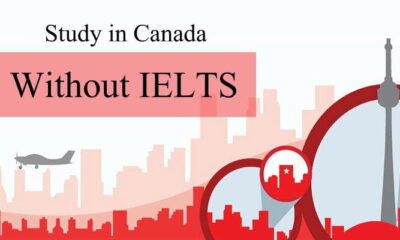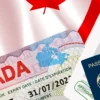Study in Canada
Don’t Be a Victim of Immigration Fraud: Tips for International Students in Canada
The fraud was uncovered when the students applied for permanent residency in Canada and the Canadian Border Service Agency (CBSA) examined the documents based on which their visas were issued and discovered that the admission letters were fraudulent.
What is a Study Permit?
A Study Permit is a document that allows foreign nationals to study at designated learning institutions (DLIs) in Canada. Most international students require a Study Permit to study in Canada, and it is recommended that students obtain this document before travelling to Canada.
Finding the Right Immigration Consultant
Most students turn to immigration consultants to help them apply to Canadian learning institutions. However, it is essential to find the right consultant to avoid fraud.
The College of Immigration and Citizenship Consultants (CICC) licenses and regulates the practice of Regulated Canadian Immigration Consultants (RCICs) and Regulated International Student Immigration Advisors (RISIAs) in the public interest.
Only licensed lawyers and consultants registered with the CICC can legally offer immigration advice and services for a fee. Education agents must also be licensed with the CICC.
It is a punishable offence to provide Canadian immigration advice for a fee or any other benefit without being licensed.
Tips for Hiring an Immigration Consultant
To avoid immigration fraud, verify your immigration consultant’s status on the Public Register of CICC. Check disciplinary notices in the CICC’s Complaints and Professional Conduct section, ask your immigration consultant for references, and read reviews online.
It is also recommended that you compare your immigration consultant’s fees with others, directly contact the immigration consultant handling your application using the contact information provided on CICC’s Public Register, and contact your employer or school directly with questions if you are in a job or study program.
Services Provided by RCICs
Regulated Canadian Immigration Consultants (RCICs) are licensed immigration consultants who can provide all immigration services to clients, including explaining immigration and citizenship options, choosing the best program for you, filling out and submitting your immigration or citizenship application, communicating with the Government of Canada on your behalf, and representing you in an immigration or citizenship application or hearing.
RISIAs Do Not Charge a “Fee”
Regulated International Student Immigration Advisors (RISIAs) do not collect fees directly from students. They are paid employees of specific Designated Learning Institutions (DLIs).
Say No to Ghost Consultants
Ghost consultants are unlicensed immigration representatives who offer services to international students (among others) in exchange for a fee and then cease all communication with the victim once money has changed hands.
To avoid these scams, be wary of phishing scams, hang up if you receive an automated call that threatens legal action regarding your immigration status, be careful of job offers that you have not applied for, and avoid finding immigration consultants on social media.
Avoid Rushing Into Signing a Housing Lease Agreement
Scammers offer fake accommodation for upfront cash payment and then vanish. It is recommended that students do not rush into signing a housing lease agreement before arriving in Canada.
Conclusion
The deportation of 700 Indian students due to fake admission letters is a severe issue that could have been avoided with the right immigration consultant. Students must ensure that they use licensed consultants and verify their status on the Public Register of CICC to avoid becoming a victim of immigration fraud.















